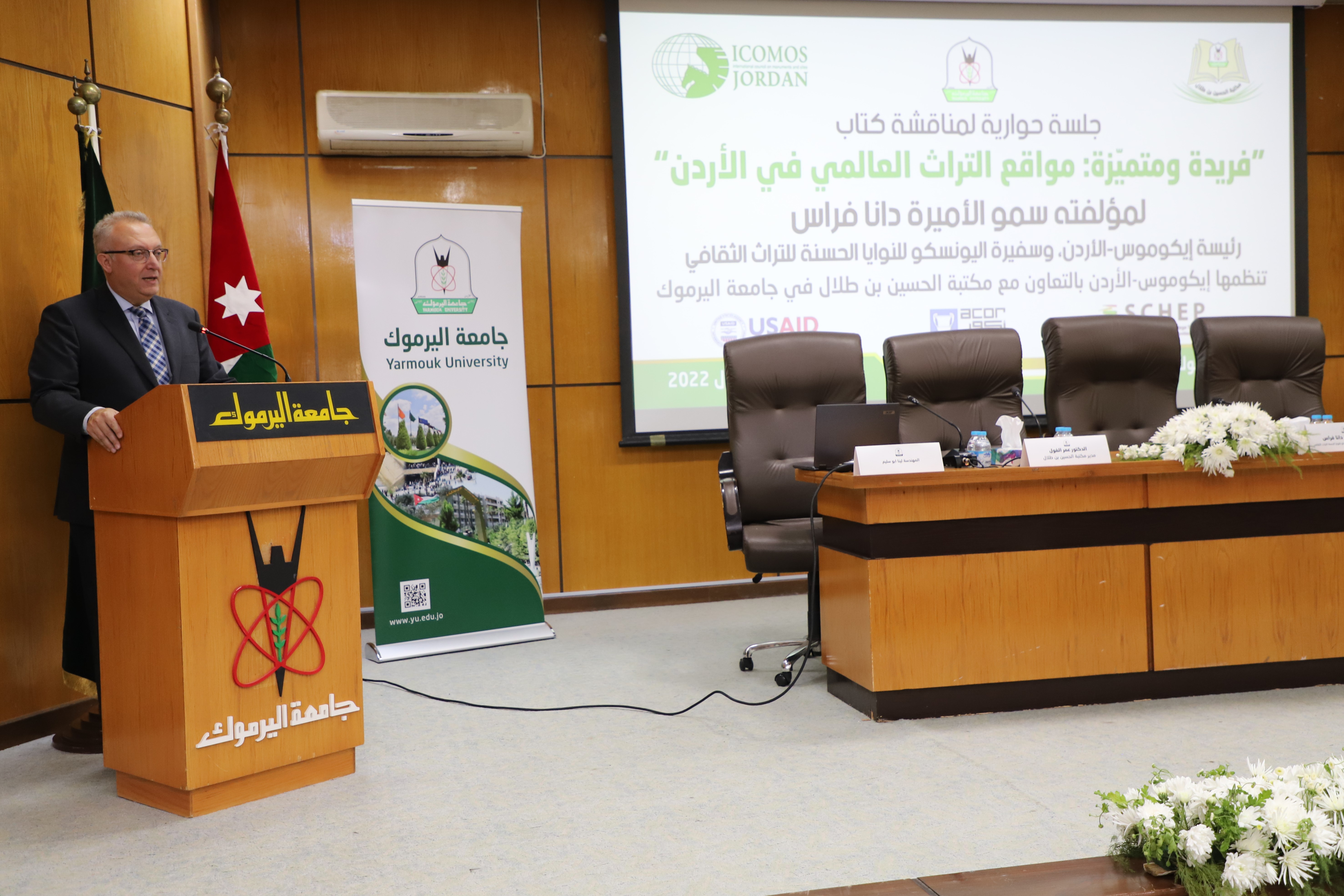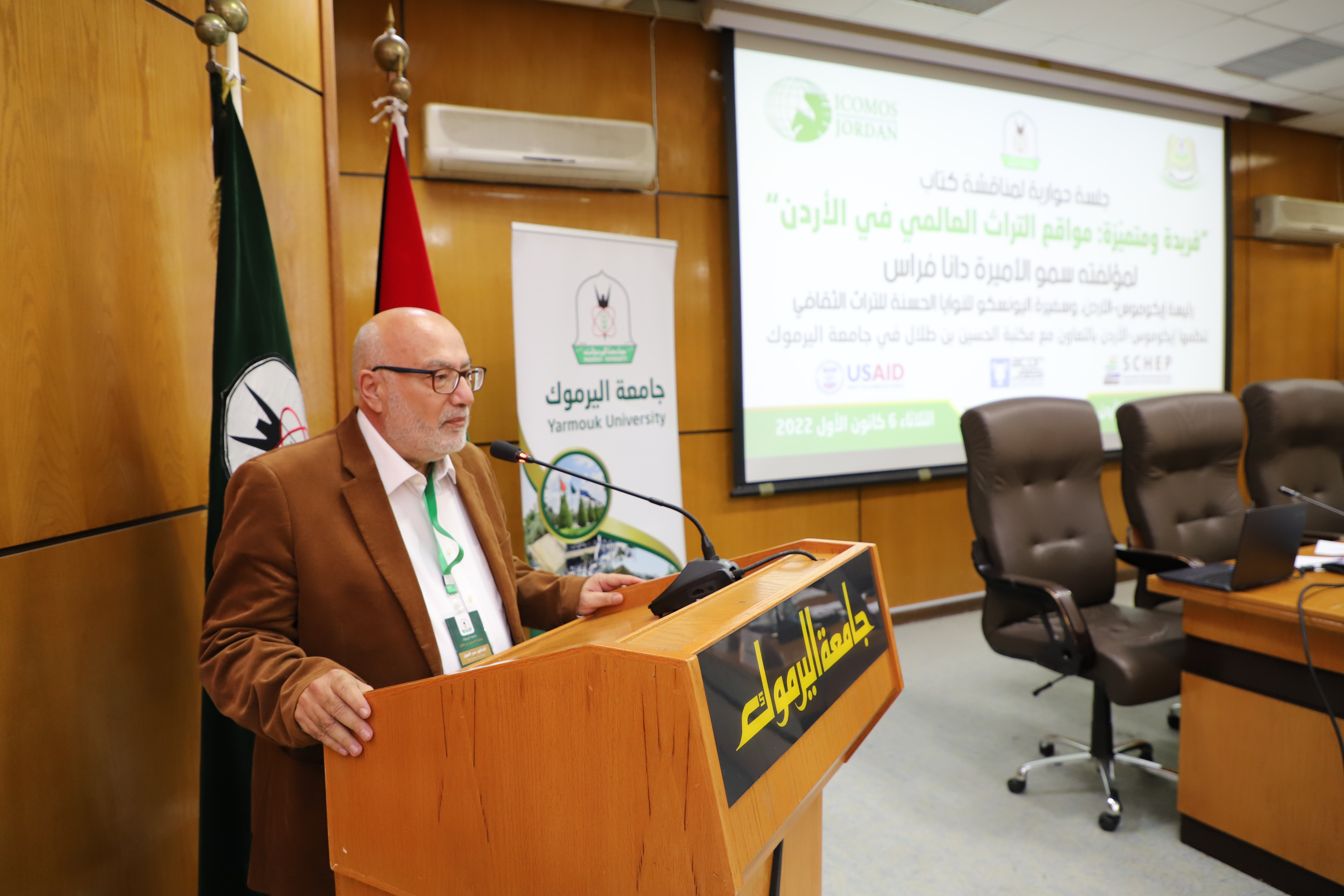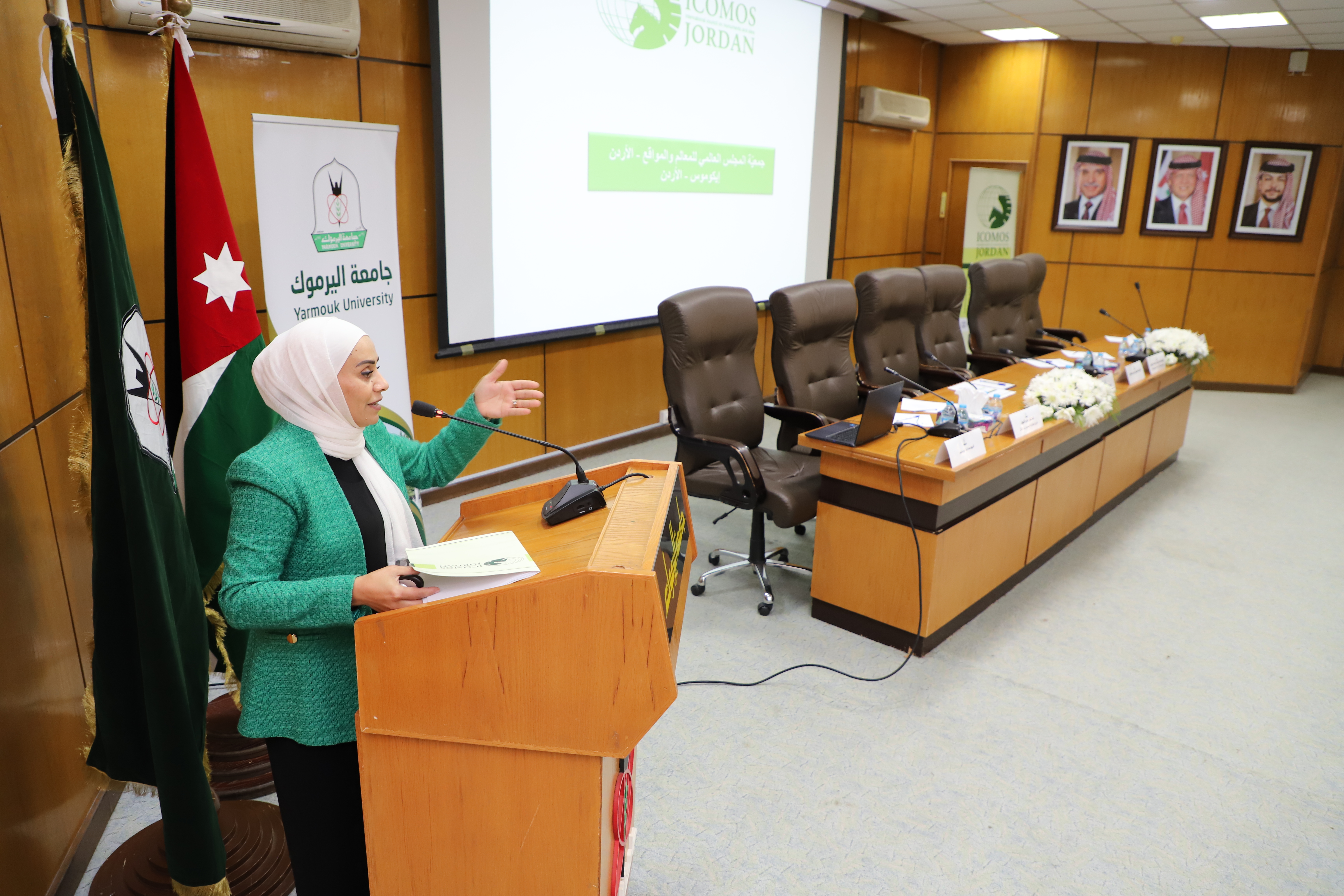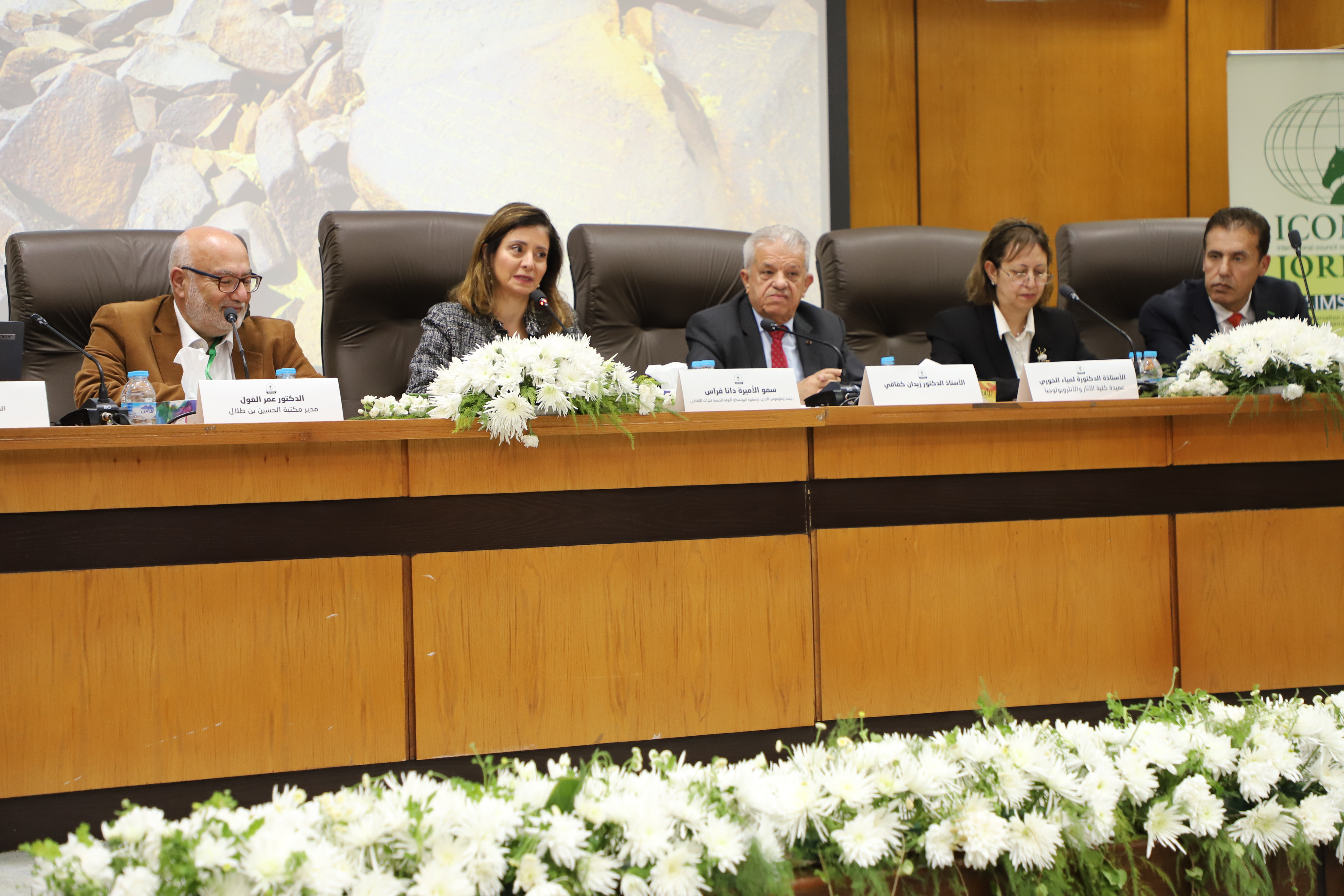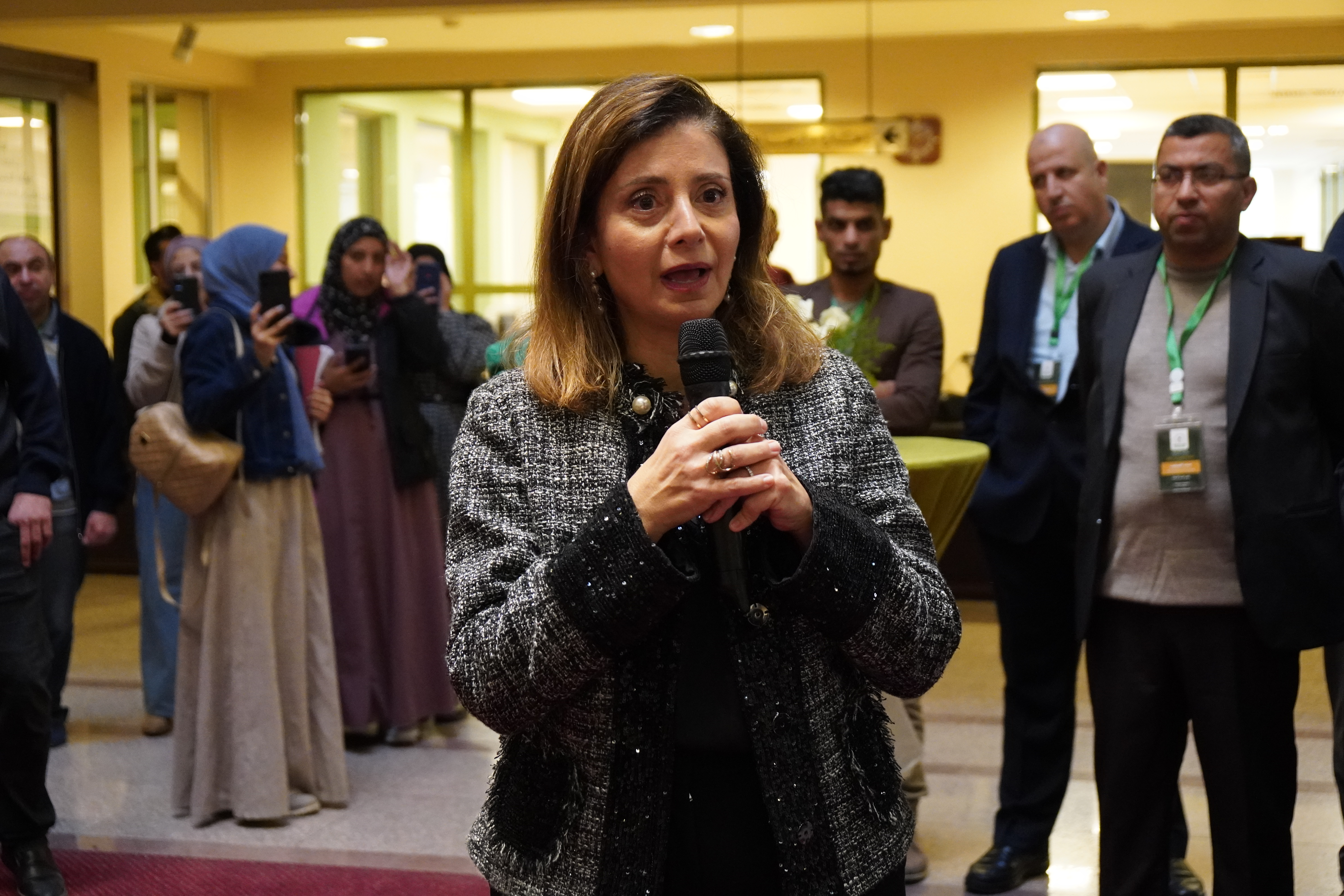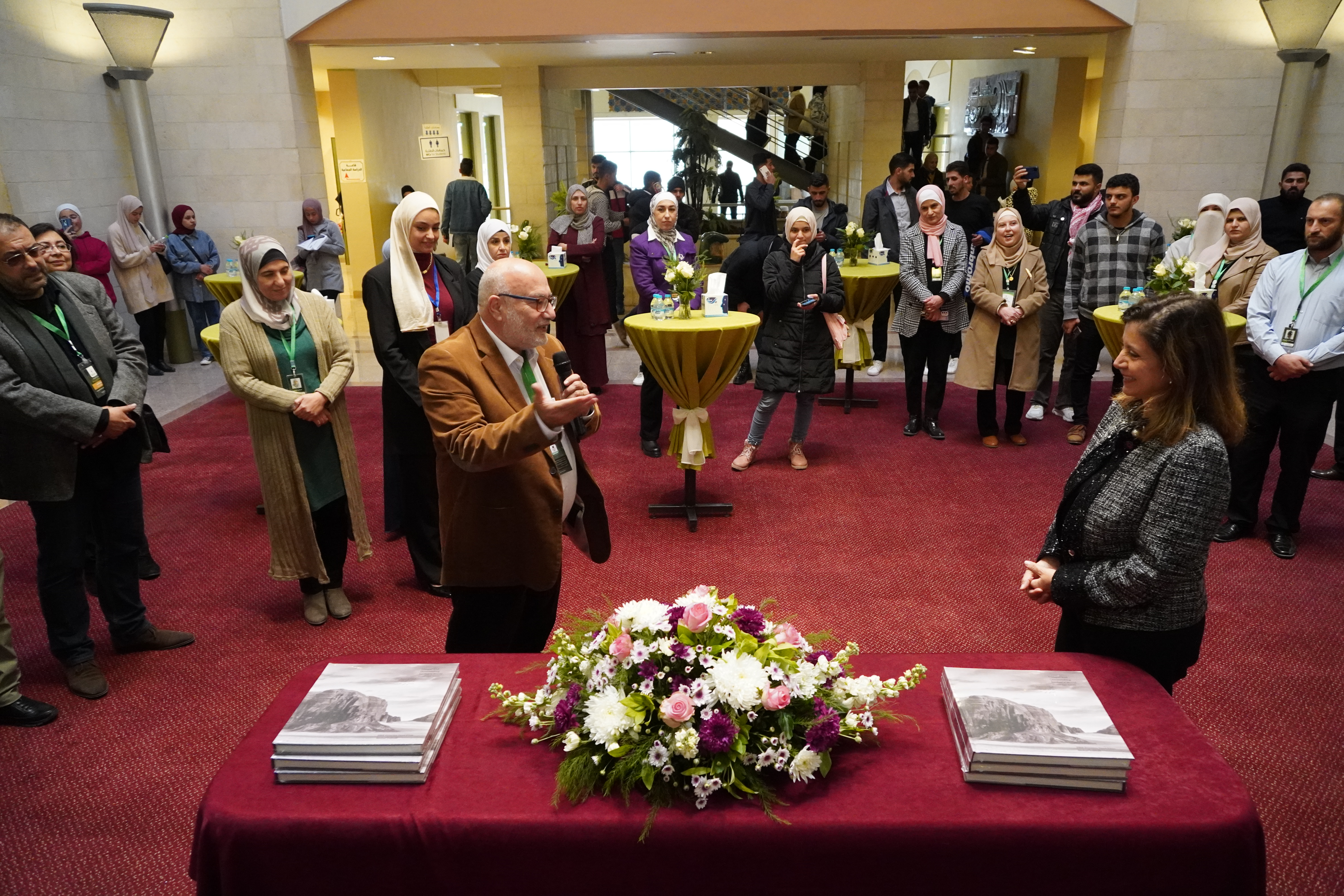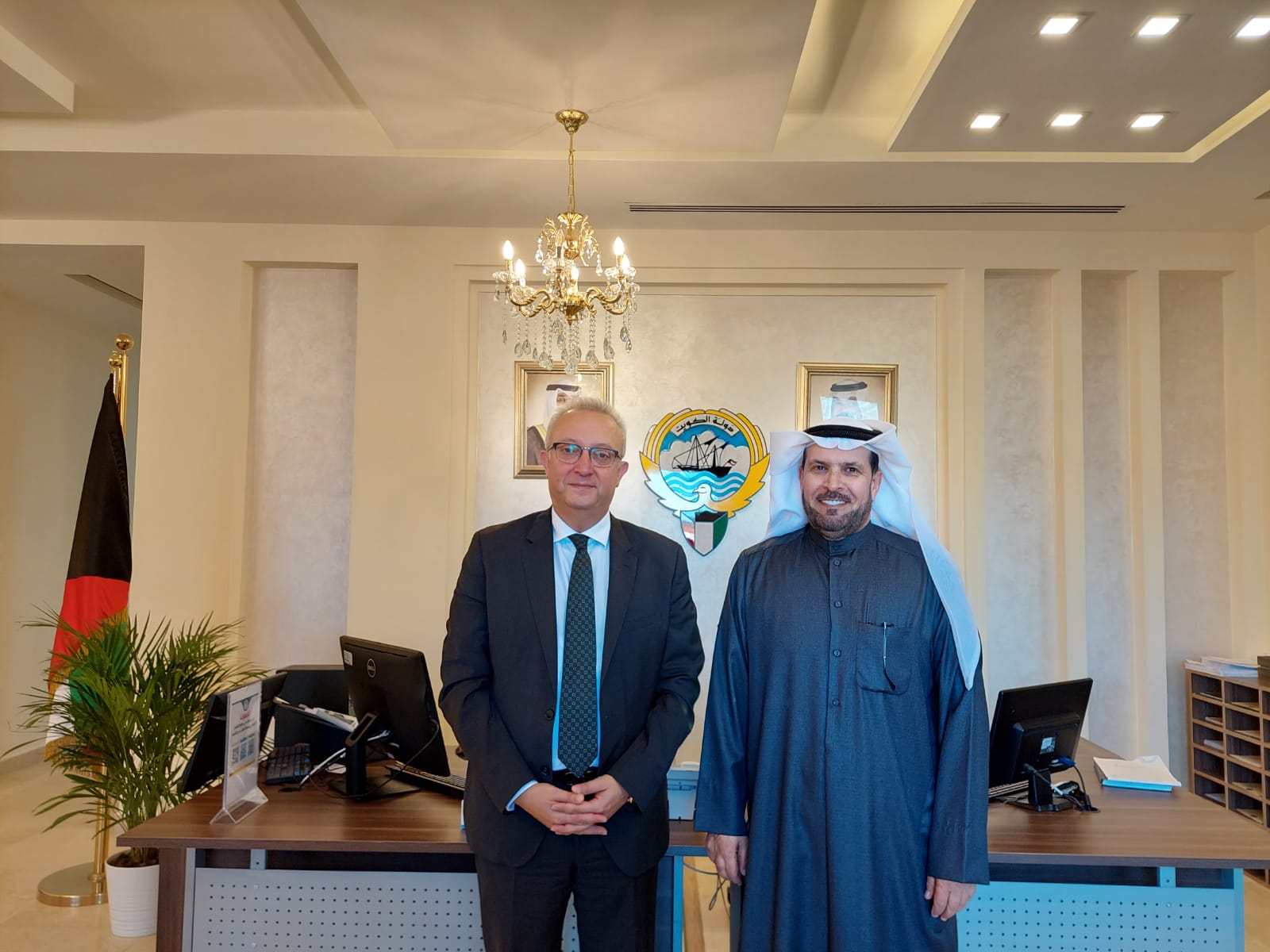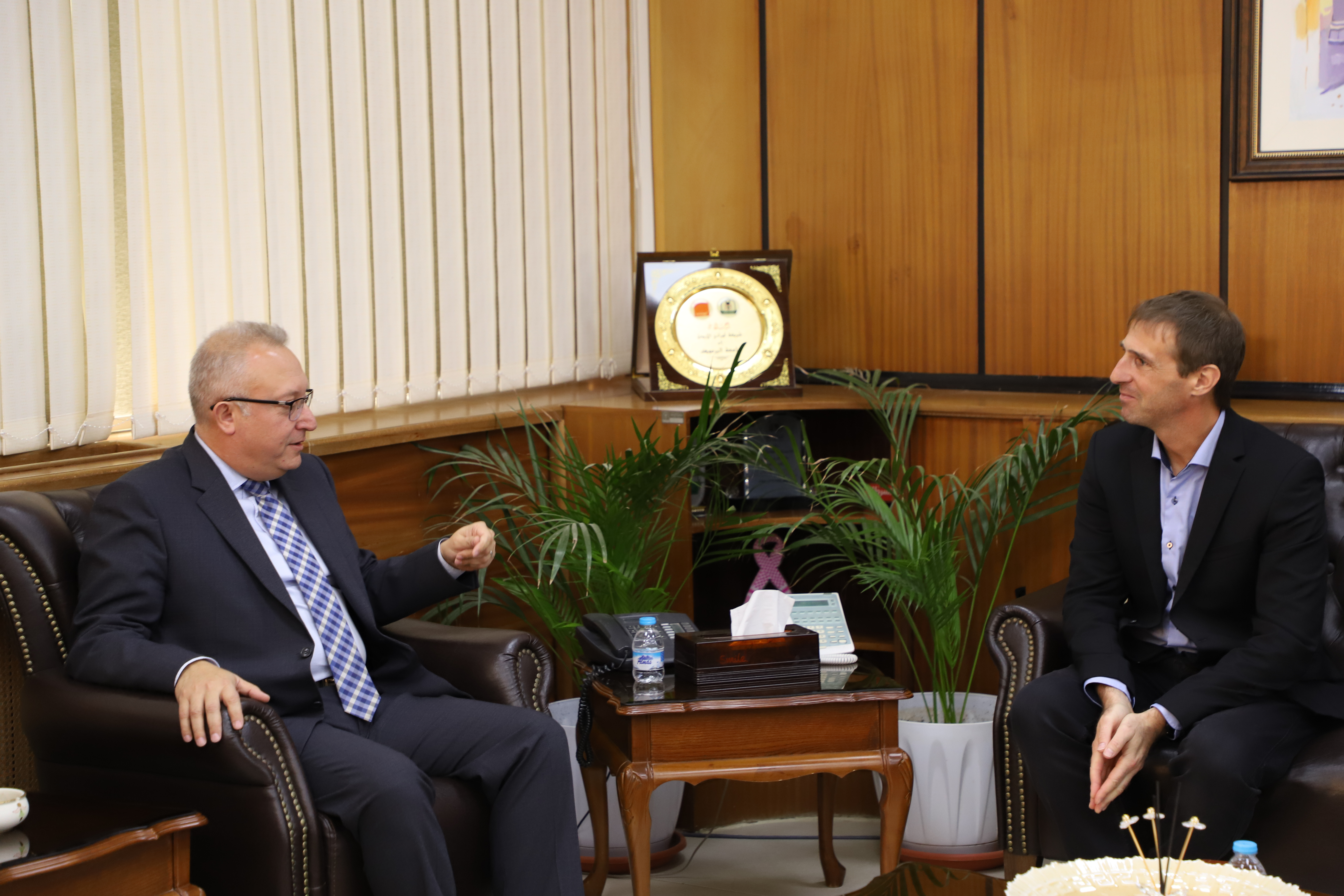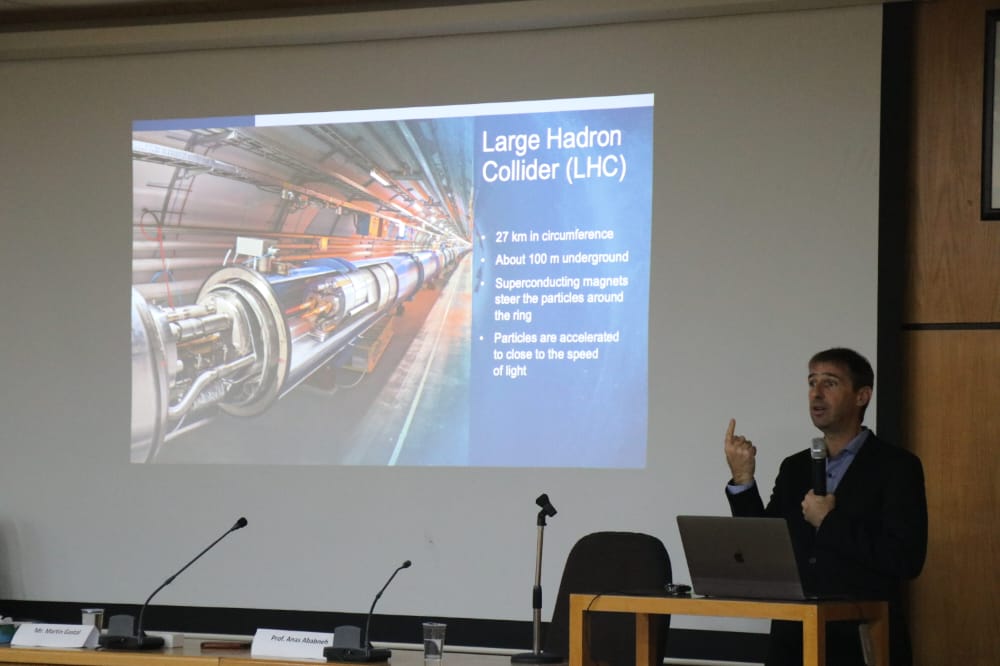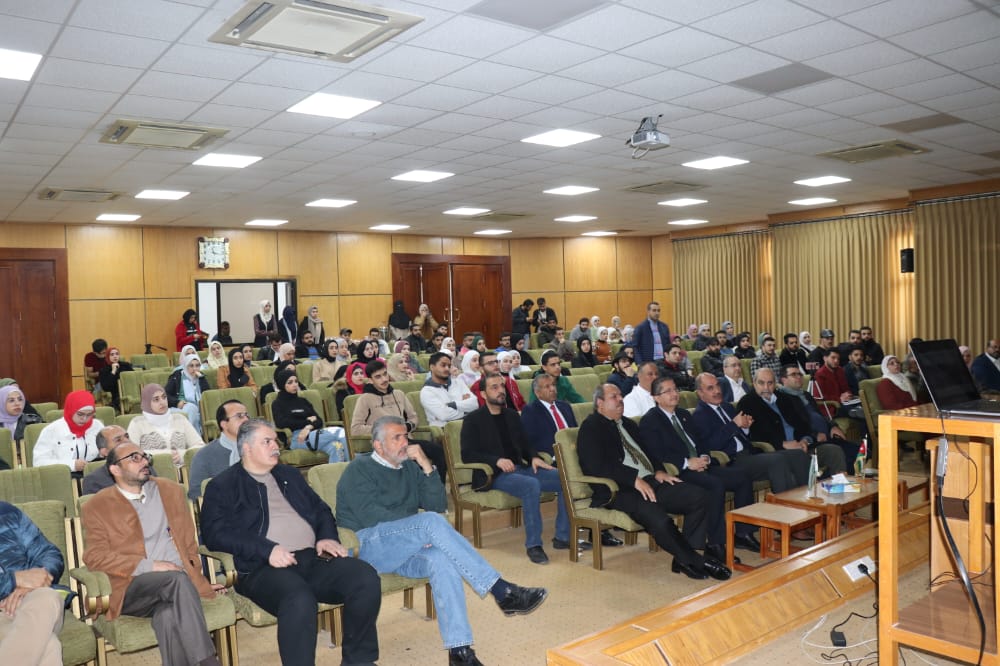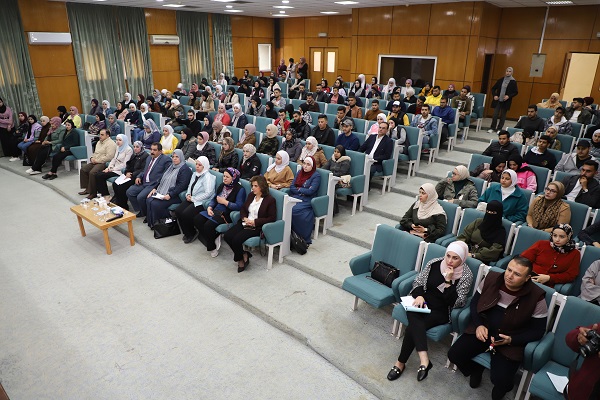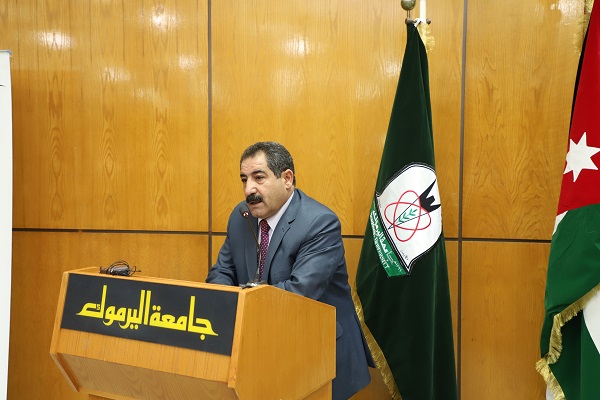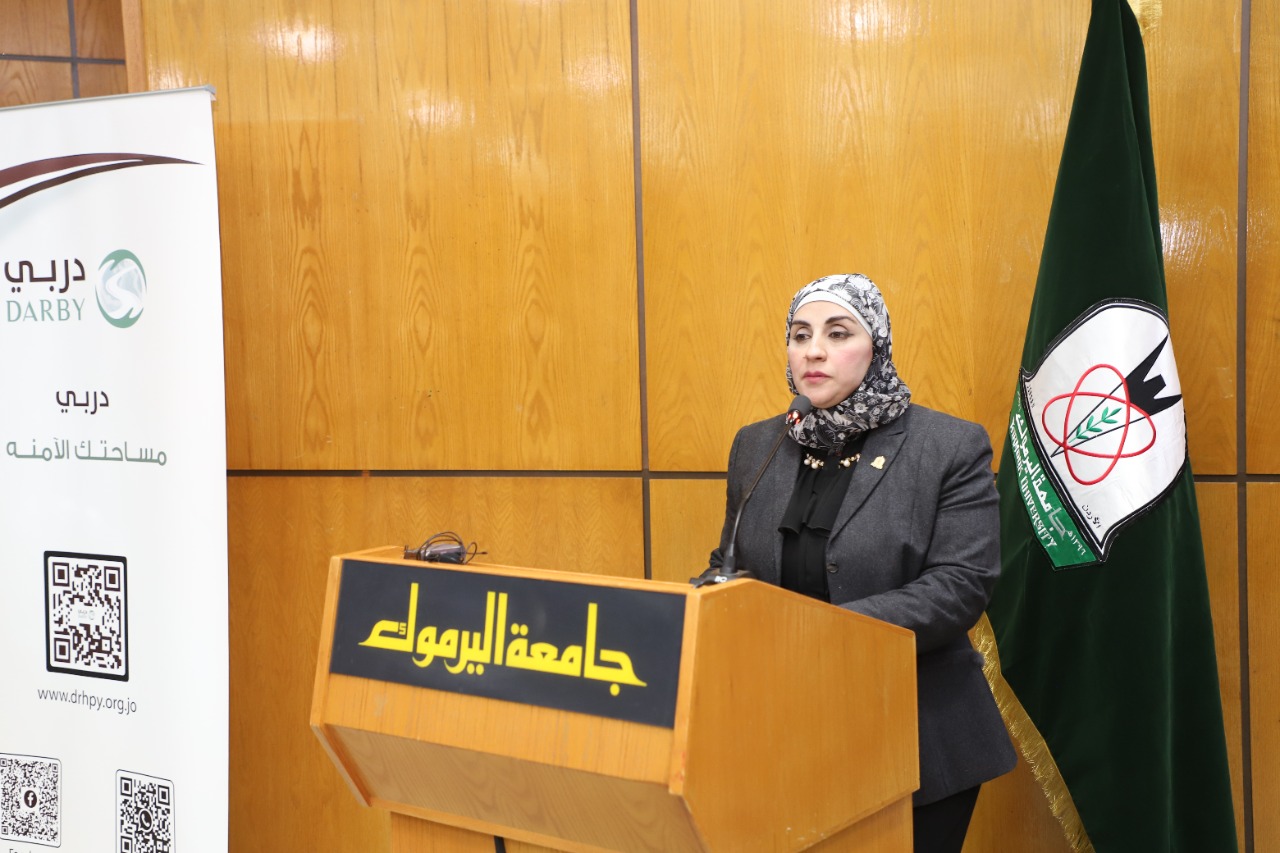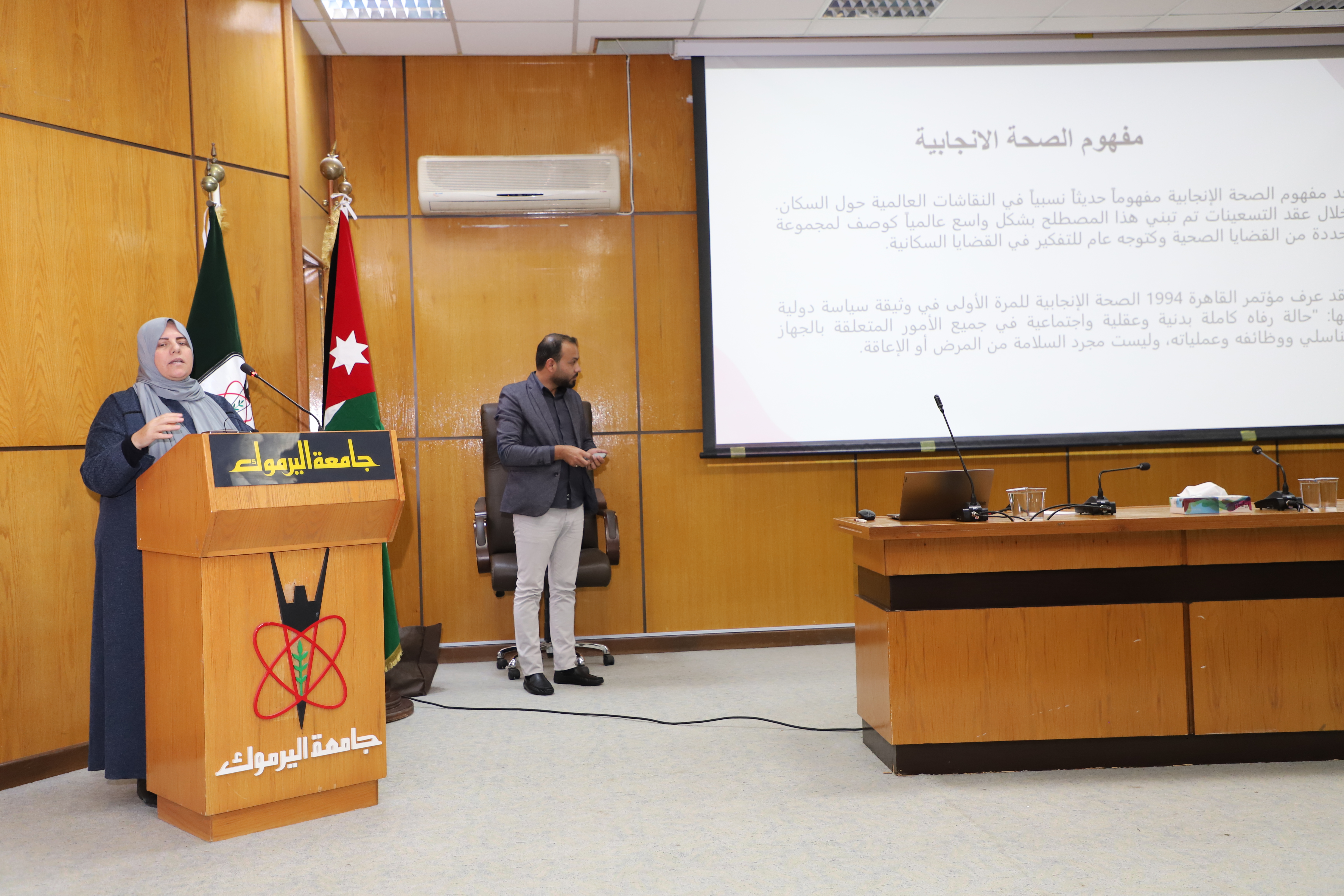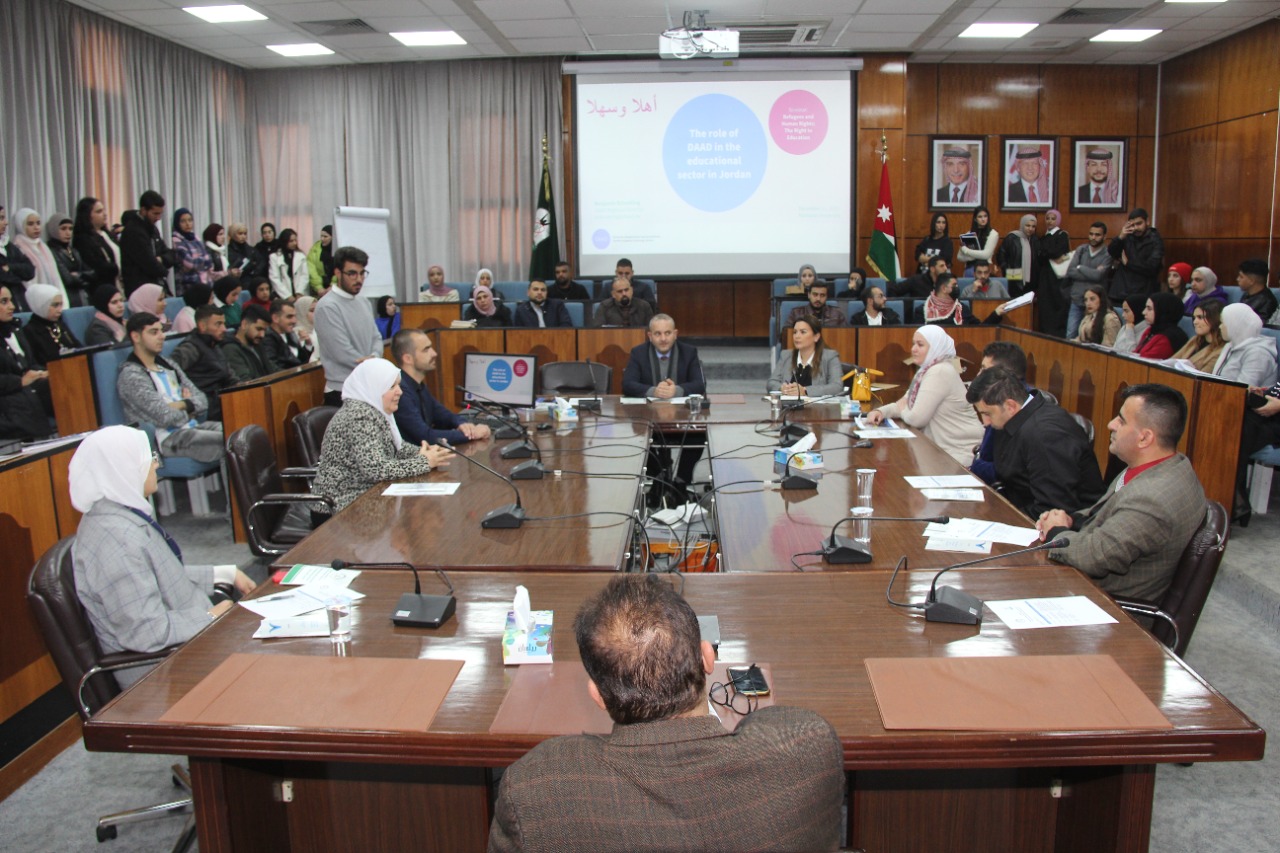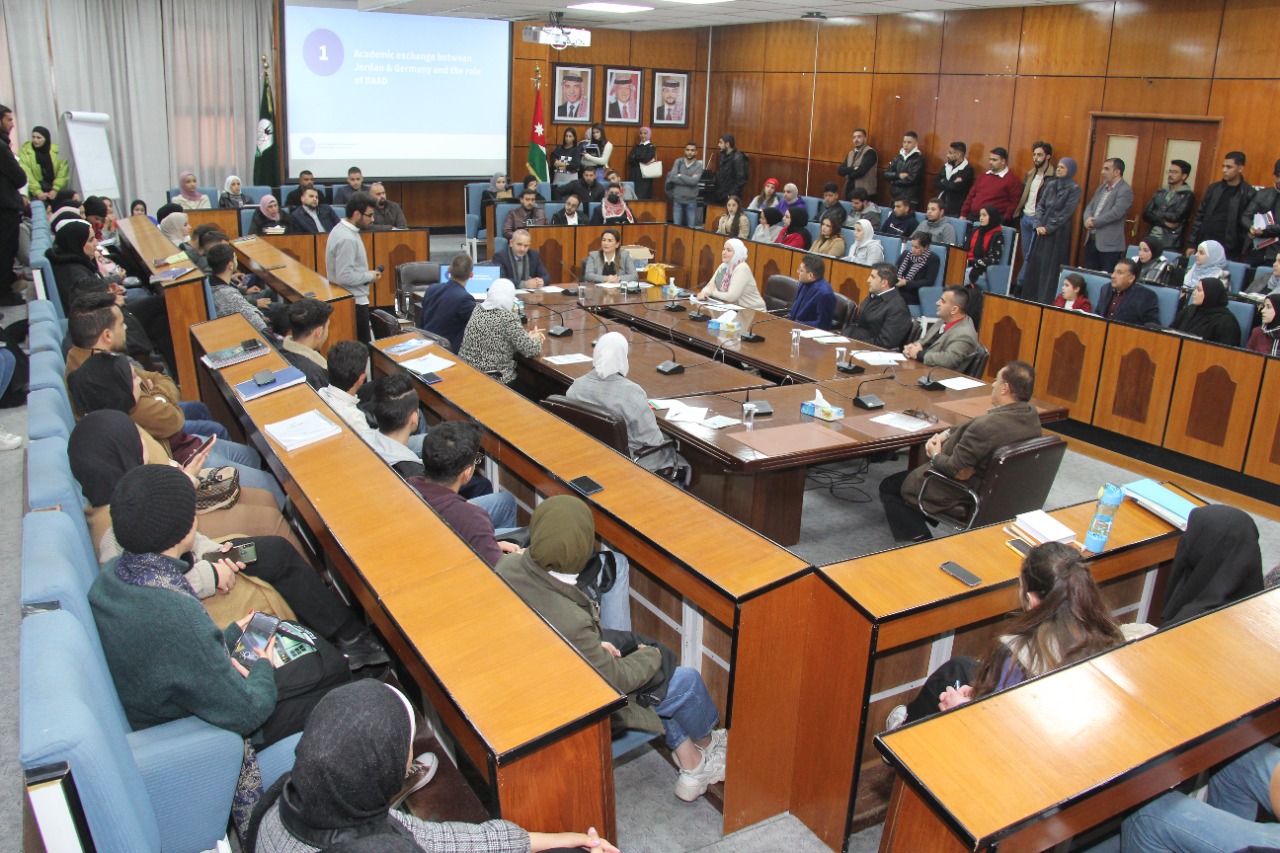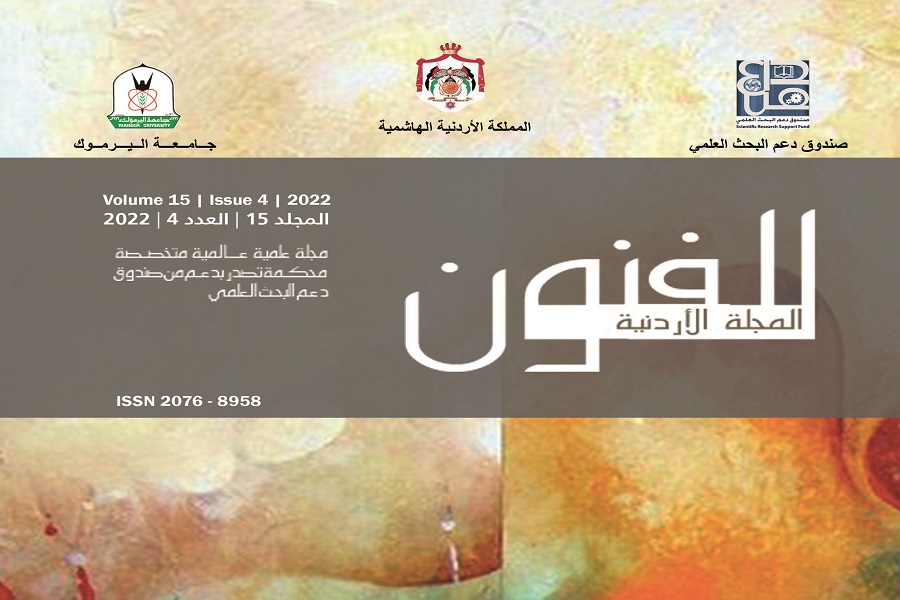
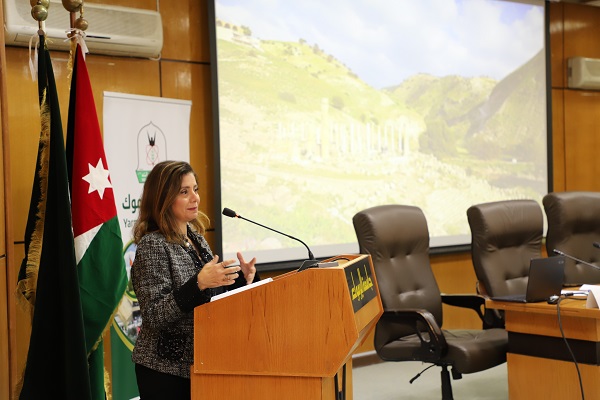
Her Highness Princess Dana Firas, President of ICOMOS - Jordan and UNESCO Goodwill Ambassador for Cultural Heritage, said that heritage with all its elements and components is a set of human values that forms identity and influences individuals’ belonging and association with homeland. This came during a dialogue session organized by Al-Hussein Bin Talal Library at Yarmouk University and the ICOMOS Jordan Office on Her Highness Princess’s book Unique and Distinguished: World Heritage Sites in Jordan. Her Highness added that heritage is directly related to growth, employment, and sustainable development, as it encourages innovation and creativity, promotes hope, positivity, and solidarity, and multiplies elements of hope and inspiration in our daily life. In addition, Her Highness said that the world attaches great importance to heritage and how to preserve and document it, which demands working hand in hand with experts, academics, and specialists to formulate history and the story of place. Her Royal Highness then thanked Yarmouk University, represented by Al-Hussein Bin Talal Library, for holding such a dialogue session, which inspires university students and acknowledges the value of heritage sites in Jordan as well as the rest of the universe.
The President of the University, Professor Islam Massad, said that holding this dialogue session complements the great efforts made by the Faculty of Archeology and Anthropology and the Faculty of Tourism in the field of archaeological excavation and scientific research. He then praised Princess Dana's initiative to transfer Her personal interest in heritage into a scientific publication, thus opening horizons of dialogue with faculty members and students on issues of the Jordanian cultural heritage and preserving it, and introducing them to international institutions working in the field of cultural heritage like the World Council of Monuments and Sites, ICOMOS.
For her part, the coordinator and director of ICOMOS Projects - Jordan, Engineer Lina Abu Salim, reviewed the emergence of ICOMOS as an international global non-governmental organization founded in 1965 and headquartered in Paris that aims at protecting and preserving cultural heritage sites and promoting the application of theory, methodology, and scientific techniques to preserve the architectural and archaeological heritage. She then noted that the Jordanian National Committee (ICOMOS- Jordan) was established in 2018 to support and promote the preservation of the Jordanian national cultural heritage through awareness programs, raising the capabilities of specialized cadres, and supporting scientific research in the fields of protection, preservation, and management of the cultural heritage.
Dr. Omar Al-Ghoul, Director of Al-Hussein Bin Talal Library at the University, stressed the importance of holding this session, as it informs students about the story of the book’s publication and its role in informing the local population about their potential contribution and participation in the process of protecting the heritage sites in Jordan. He also pointed out that the Library, through the session, celebrates the issuance of such a distinguished book, which deals with a subject very close to our identity and our national economy. Besides, Dr. Zeidan Kafafi, the former president of the University, said that students are aware of the repositories of civilization represented by archaeological sites through their stocks of archaeological remains and ancient writings, so that they may monitor the manner and extent of human civilizational development through the ages of any region. He then stressed that the book of Princess Dana Firas includes information, maps, and pictures of twenty Jordanian archaeological sites arranged in a list starting with the first site registered on the World Heritage List in 1985, namely Petra, and closing with a site nominated for the preliminary list since 2019, namely Al-Hurra Basalt.
For her part, the Dean of the Faculty of Archeology and Anthropology at Yarmouk University, Dr. Lamia Khoury, reviewed the role of the University through the Faculty in raising the society's awareness of the importance of its cultural heritage and encouraging its participation in the process of appreciating and preserving that heritage. She added that the Faculty was established in 1984 as an academic and research institute specialized in the fields of archeology, anthropology, and inscriptions, after which it was transformed into a Faculty that grants bachelor and master degrees in archeology, anthropology, preservation and management of heritage resources, and ancient inscriptions and writings.
